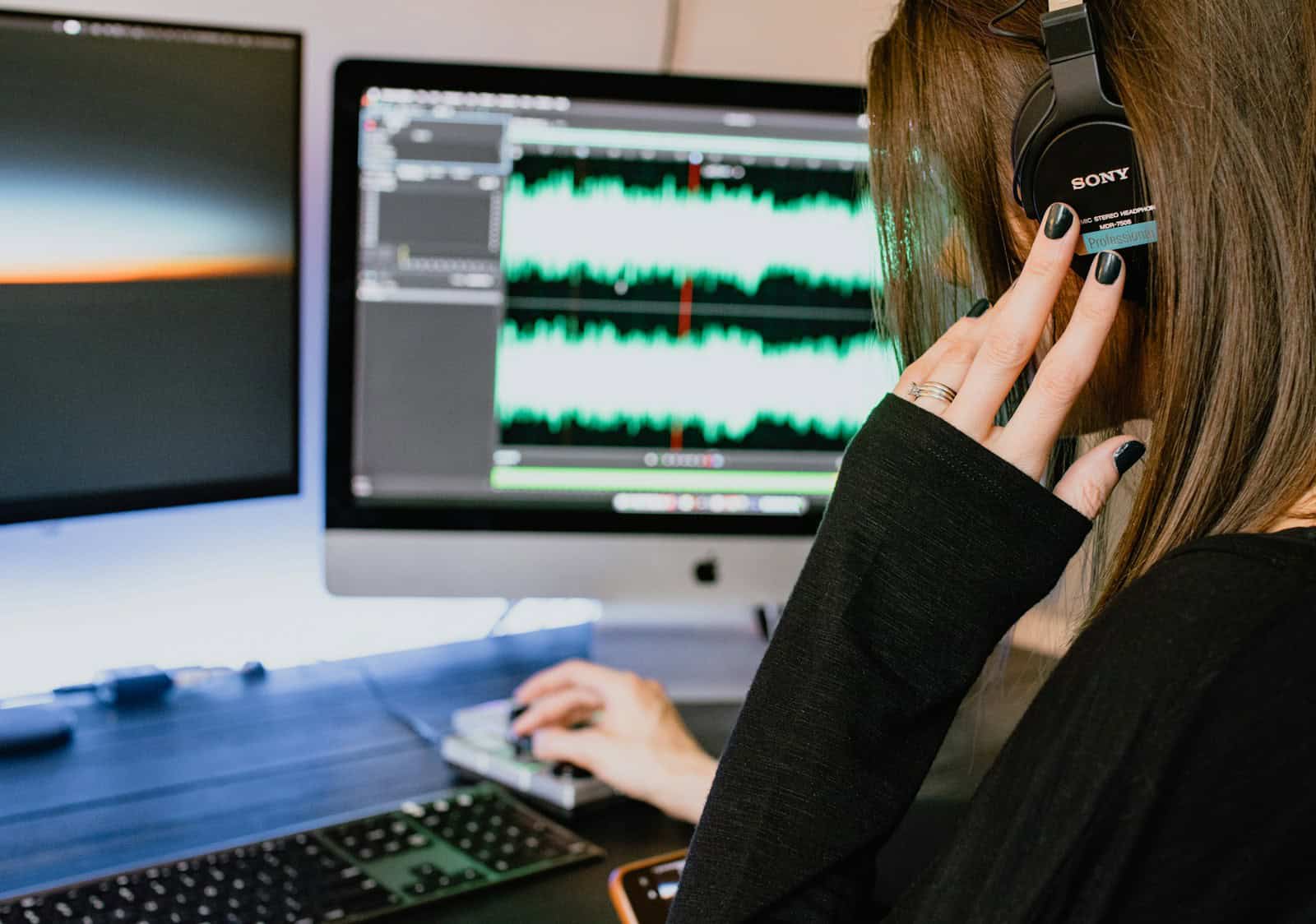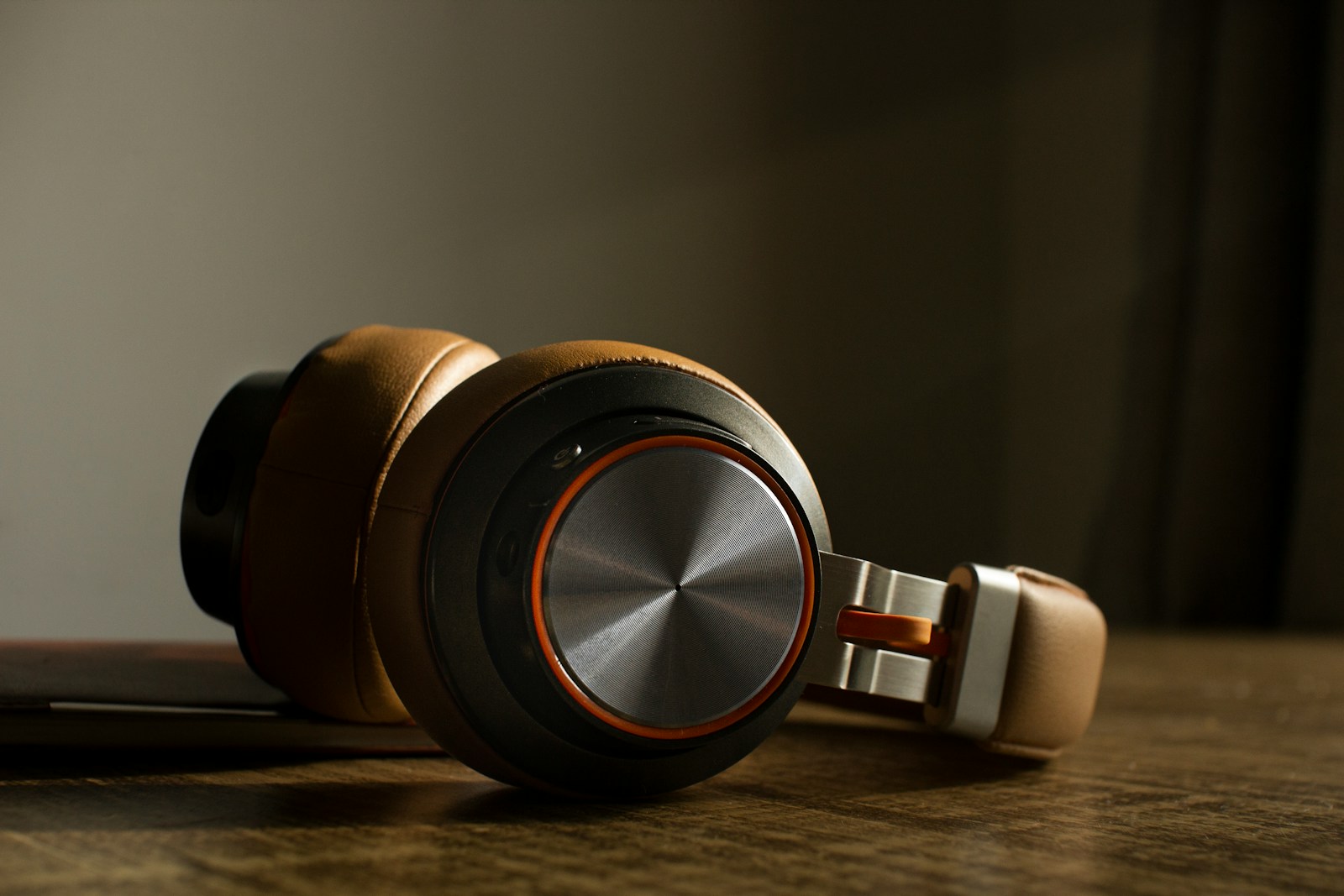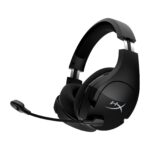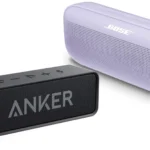A buzzing noise in headphones can disrupt your listening experience. This common issue has several potential causes, ranging from hardware problems to software glitches. The first step to fix buzzing headphones is to identify whether the issue stems from the headphones themselves or the audio source.
To troubleshoot, try connecting your headphones to a different device. If the buzzing persists, the problem likely lies within the headphones. Check for loose connections, damaged wires, or worn-out components. For software-related issues, adjusting audio settings or updating drivers may resolve the buzzing.
Improving audio quality often requires a systematic approach. Start with simple solutions like cleaning the headphone jack and ensuring a secure connection. If these steps don’t work, more advanced troubleshooting techniques may be necessary. Remember, some buzzing issues may require professional repair or headphone replacement.
Troubleshooting Buzzing Headphones

Common Causes of Buzzing Headphones
Buzzing in headphones can stem from various sources, often related to the headphones themselves, the audio source, or the surrounding environment. Identifying the root cause is crucial to finding the right solution. Here’s a breakdown of the most common culprits:
- Damaged Cables or Loose Connections: A frayed or damaged headphone cable can disrupt the audio signal, leading to a buzzing sound. Similarly, loose connections between the headphones and the audio source can also cause this issue.
- Electrical Interference: Electronic devices, Wi-Fi routers, and power lines emit electromagnetic fields that can interfere with the audio signal in your headphones, resulting in a buzzing noise.
- Audio Source Issues: The problem might not be your headphones but the audio source itself. A malfunctioning audio jack, sound card, or amplifier can introduce buzzing into the audio output.
- Headphone Driver Problems: The drivers in your headphones are responsible for converting electrical signals into sound waves. If a driver is damaged or malfunctioning, it can produce a buzzing or distorted sound.
- Environmental Factors: In some cases, environmental factors like high humidity or extreme temperatures can affect the delicate components in your headphones and cause buzzing.
Troubleshooting Steps
Follow these steps to diagnose and fix the buzzing noise in your headphones:
- Check the Headphones and Cable: Inspect the headphone cable for any visible damage, kinks, or fraying. If you find any, consider replacing the cable. Also, ensure the headphones are properly plugged into the audio source.
- Test with Different Devices: Connect your headphones to different audio sources, such as a smartphone, laptop, or tablet, to see if the buzzing persists. This will help you determine if the issue lies with the headphones or the original audio source.
- Isolate from Interference: Move away from electronic devices, Wi-Fi routers, and power lines to minimize potential electrical interference. If the buzzing reduces, you’ve identified the cause.
- Adjust Audio Settings: Check the audio settings on your device and make sure the volume is not too high. Also, try adjusting the equalizer settings to see if it makes a difference.
- Update or Reinstall Audio Drivers: If you suspect a problem with your audio drivers, try updating or reinstalling them. Outdated or corrupted drivers can often cause audio issues.
- Clean the Headphones: Dust, debris, or earwax buildup in the headphone jack or earcups can sometimes cause buzzing. Gently clean these areas with a soft, dry cloth.
- Contact Support or Repair: If none of the above steps work, the issue might be more serious. Contact the headphone manufacturer’s customer support or take your headphones to a qualified repair shop for further assistance.
Additional Tips
- Consider Grounding: If electrical interference is a recurring problem, consider using a grounded outlet or a ground loop isolator to reduce noise.
- Use a Headphone Amplifier: A dedicated headphone amplifier can improve audio quality and reduce the impact of interference, especially for high-impedance headphones.
- Try Different Headphones: If possible, test with another pair of headphones to confirm if the issue is with your headphones or the audio source.
Remember, buzzing in headphones is a common problem with various potential causes. By following these troubleshooting steps, you can often identify the source of the issue and find a solution to enjoy your audio experience without annoying distractions.
Understanding Headphone Impedance
Headphone impedance, measured in ohms (Ω), represents the electrical resistance that a headphone presents to the audio source. It plays a crucial role in determining how much power a headphone needs to produce sound and can significantly impact its overall performance.
| Impedance Level | Characteristics | Best Suited For |
|---|---|---|
| Low (<50 Ω) | * Require less power to drive, making them suitable for portable devices like smartphones and laptops. | * Casual listening |
| Medium (50-300 Ω) | * Strike a balance between power requirements and sensitivity, offering good performance with a variety of audio sources. | * General use with smartphones, computers, and some dedicated headphone amplifiers |
| High (>300 Ω) | * Often used in professional audio settings and require more power to drive, typically necessitating a dedicated headphone amplifier. | * Critical listening, professional audio production, and use with high-quality headphone amplifiers. May require an amplifier to reach their full potential when used with portable devices. |
Understanding headphone impedance is essential for selecting the right headphones for your audio source and listening preferences. Matching impedance ensures optimal performance, prevents distortion, and helps you get the most out of your audio equipment.
Key Takeaways
- Identify the source of buzzing by testing headphones with different devices
- Check for physical damage and clean connections to improve audio quality
- Adjust software settings or update drivers to resolve persistent buzzing issues
Identifying the Cause of Headphone Buzzing
Headphone buzzing can stem from various sources, including hardware defects, software glitches, and external interference. Pinpointing the exact cause is crucial for effective troubleshooting and resolution.
Hardware or Software Issues
Hardware problems often manifest as persistent buzzing sounds in headphones. Faulty wiring or loose connections within the headphone structure can lead to audio distortions. Damaged speakers may produce unwanted noise due to physical wear or manufacturing defects.
Software issues can also trigger buzzing. Outdated or corrupted audio drivers may cause sound anomalies. Users should check for driver updates regularly to ensure optimal performance. System-wide audio settings can sometimes conflict with headphone functionality, resulting in unwanted sounds.
Auxiliary port problems can introduce buzzing. A bent or dirty port may not establish a proper connection, leading to audio interference. Inspecting and cleaning the port can often resolve this issue.
Interference and Connection Problems
Electronic devices near headphones can create electromagnetic interference (EMI). This interference manifests as buzzing or humming sounds. Moving headphones away from potential sources like smartphones or routers may alleviate the problem.
Bluetooth headphones are susceptible to frequency interference. Other wireless devices operating on similar frequencies can disrupt audio signals, causing buzzing. Changing the Bluetooth channel or moving away from interfering devices can help.
Ground loops occur when multiple devices connected to a power source create a circular current flow. This can introduce a low hum or buzz in headphones. Using a ground loop isolator can effectively break this circuit and eliminate the noise.
Environmental factors like electrical wiring in walls or fluorescent lighting can sometimes cause interference. Identifying and avoiding these sources can improve headphone audio quality.
Solving the Buzzing Issue
Fixing buzzing noises in headphones often involves adjusting settings and performing practical troubleshooting steps. These methods can help identify and resolve the root cause of the problem.
Adjusting Audio and Device Settings
Check the volume levels on both the audio source and headphones. High volume settings can cause distortion and buzzing. Lower the volume gradually to find a clear sound range.
Open the sound settings on your device. Look for options to disable audio enhancements or sound effects. These features can sometimes cause unwanted noise.
For Windows users, right-click the speaker icon in the taskbar. Select “Open Sound settings” and navigate to “Sound Control Panel”. Here, you can adjust device properties and disable enhancements.
On Mac, open “System Preferences” and click “Sound”. Ensure the correct output device is selected and adjust the balance slider if needed.
Practical Troubleshooting Steps
Inspect the audio cable for signs of wear or damage. A frayed or loose cable can cause buzzing. Try gently wiggling the cable while listening. If the sound changes, consider replacing the cable.
Test the headphones with different devices. This helps determine if the issue is with the headphones or the audio source.
Clean the headphone jack and plug. Use a cotton swab with rubbing alcohol to remove dirt or debris. Ensure the cleaning solution is completely dry before reconnecting.
Update audio drivers on your computer. Outdated or corrupted drivers can cause sound issues. Visit the manufacturer’s website to download the latest version.
For wireless headphones, check for interference from other devices. Move away from potential sources of electromagnetic interference like routers or microwaves.
Frequently Asked Questions
Buzzing noises in headphones can be frustrating. Here are solutions for common issues with wired, wireless, and Bluetooth headphones, as well as microphones and single-ear problems.
What steps can be taken to eliminate buzzing sounds in wired headphones?
Check the headphone jack for debris or damage. Clean it gently with a cotton swab and rubbing alcohol. Ensure the plug is fully inserted into the audio source.
Inspect the cable for frays or breaks. Replace the cable if damaged. Try the headphones with a different audio source to isolate the problem.
How can one troubleshoot a buzzing noise issue with Bluetooth headphones on Android devices?
Reset the Bluetooth connection on your Android device. Forget the headphones in Bluetooth settings, then re-pair them. Update your device’s software and the headphone firmware if available.
Clear the Bluetooth cache on your Android. Go to Settings > Apps > Bluetooth > Storage > Clear Cache. Restart your device and reconnect the headphones.
What methods are effective at resolving headphone buzzing when connected to an iPhone?
Toggle Airplane Mode on and off to reset wireless connections. Update your iPhone to the latest iOS version. Check for interference from other wireless devices nearby.
Adjust the iPhone’s EQ settings. Go to Settings > Music > EQ and try different presets or turn it off completely. Reset network settings if the issue persists.
What techniques are available to address static noise in wireless headphones?
Move closer to the audio source to improve signal strength. Remove obstacles between the headphones and the transmitter. Charge the headphones fully to ensure optimal performance.
Change the wireless channel if your headphones support this feature. Consult the user manual for instructions specific to your model.
How does one fix a buzzing sound in headphone microphones?
Check microphone settings on your device. Adjust input levels and disable any audio enhancements. Ensure the microphone is not obstructed by clothing or accessories.
Try a different audio recording app to rule out software issues. If the problem persists, the microphone may be faulty and require professional repair or replacement.
What are the solutions for headphone buzzing exclusively in one ear?
Balance the audio output on your device. On most smartphones, this setting is found in Accessibility options. Swap the left and right earbuds to determine if the issue follows the earbud or the audio channel.
Clean the affected earbud’s speaker grille carefully with a soft brush. If the problem continues, internal wiring may be damaged, requiring repair or replacement.







